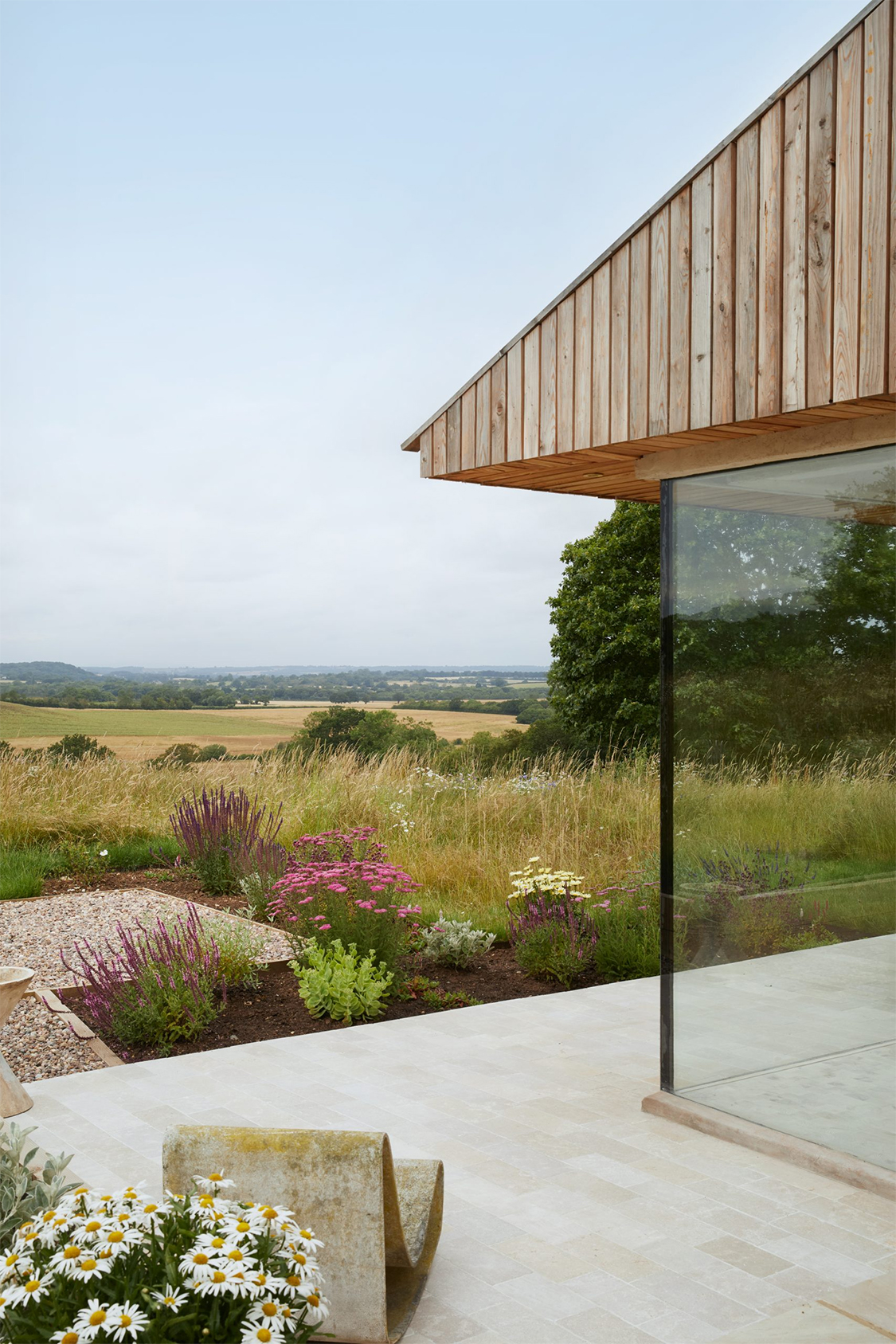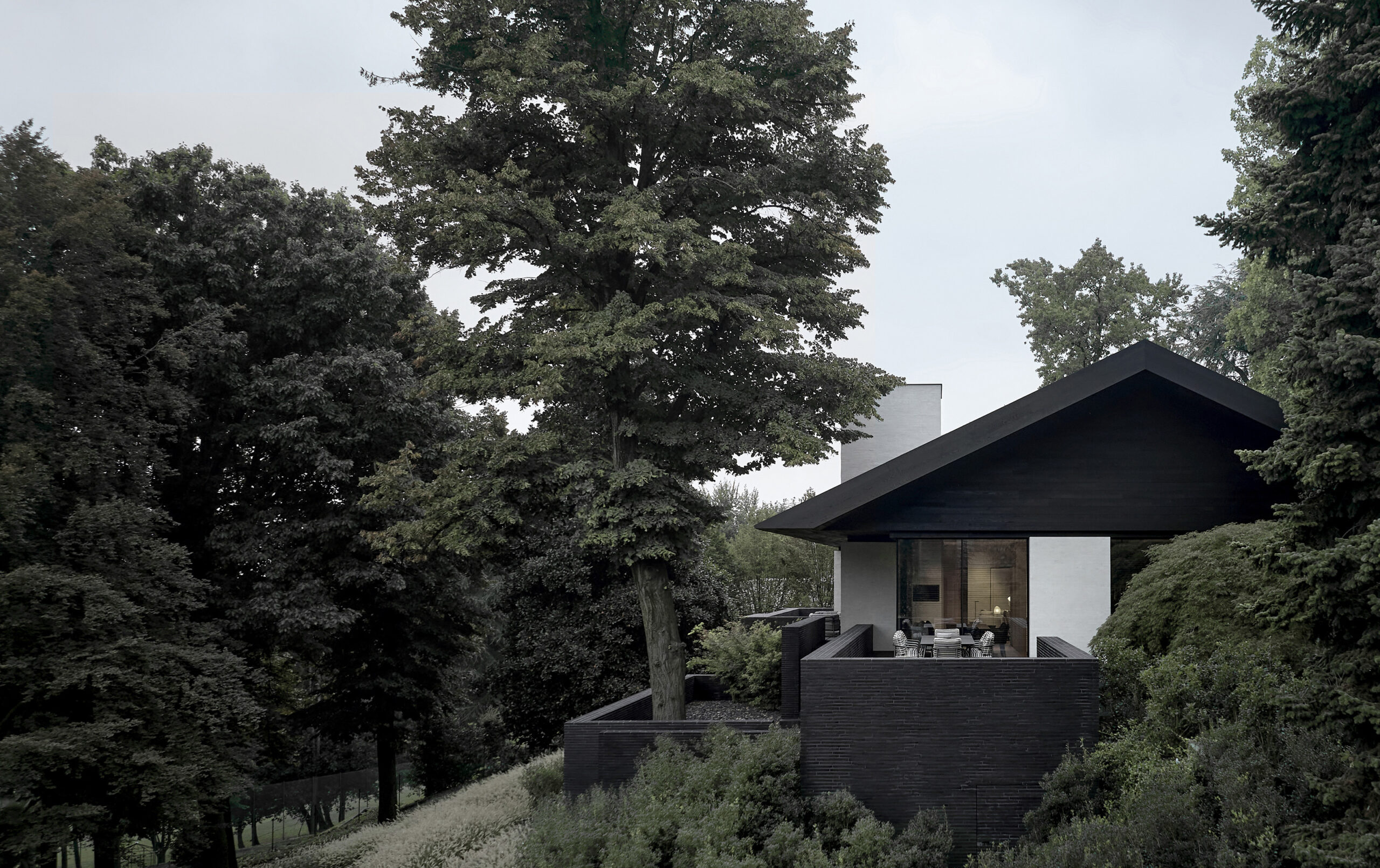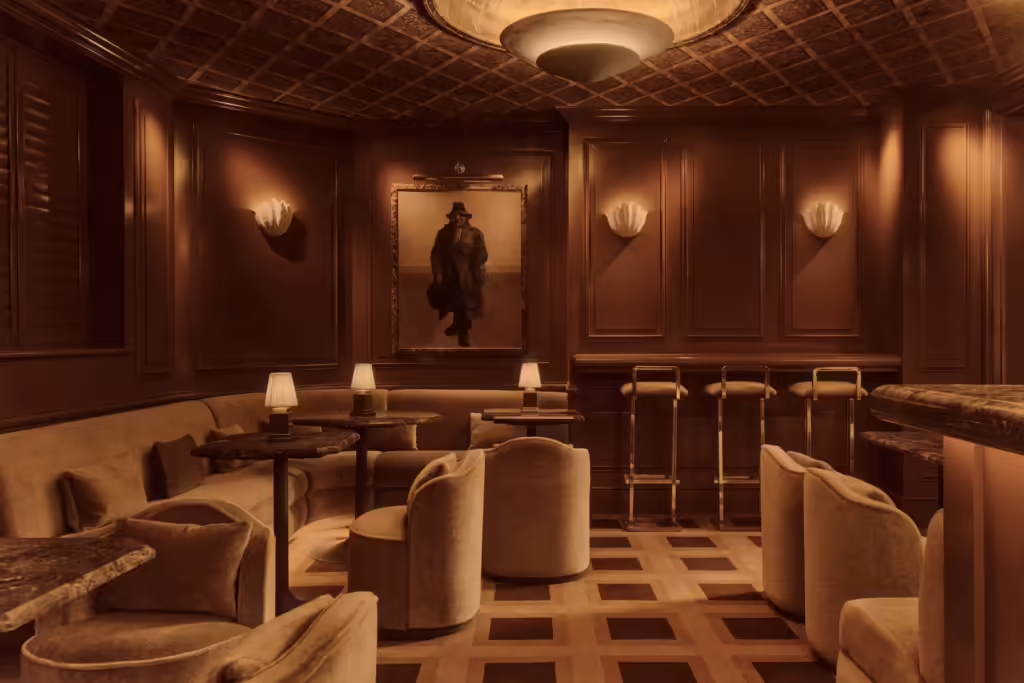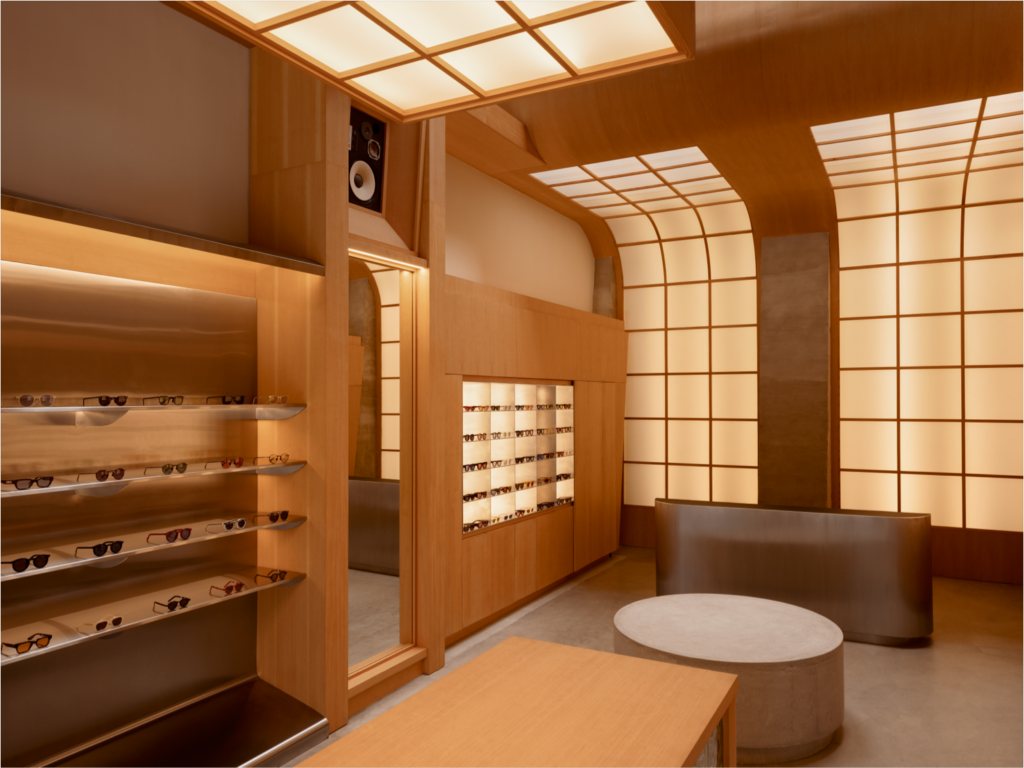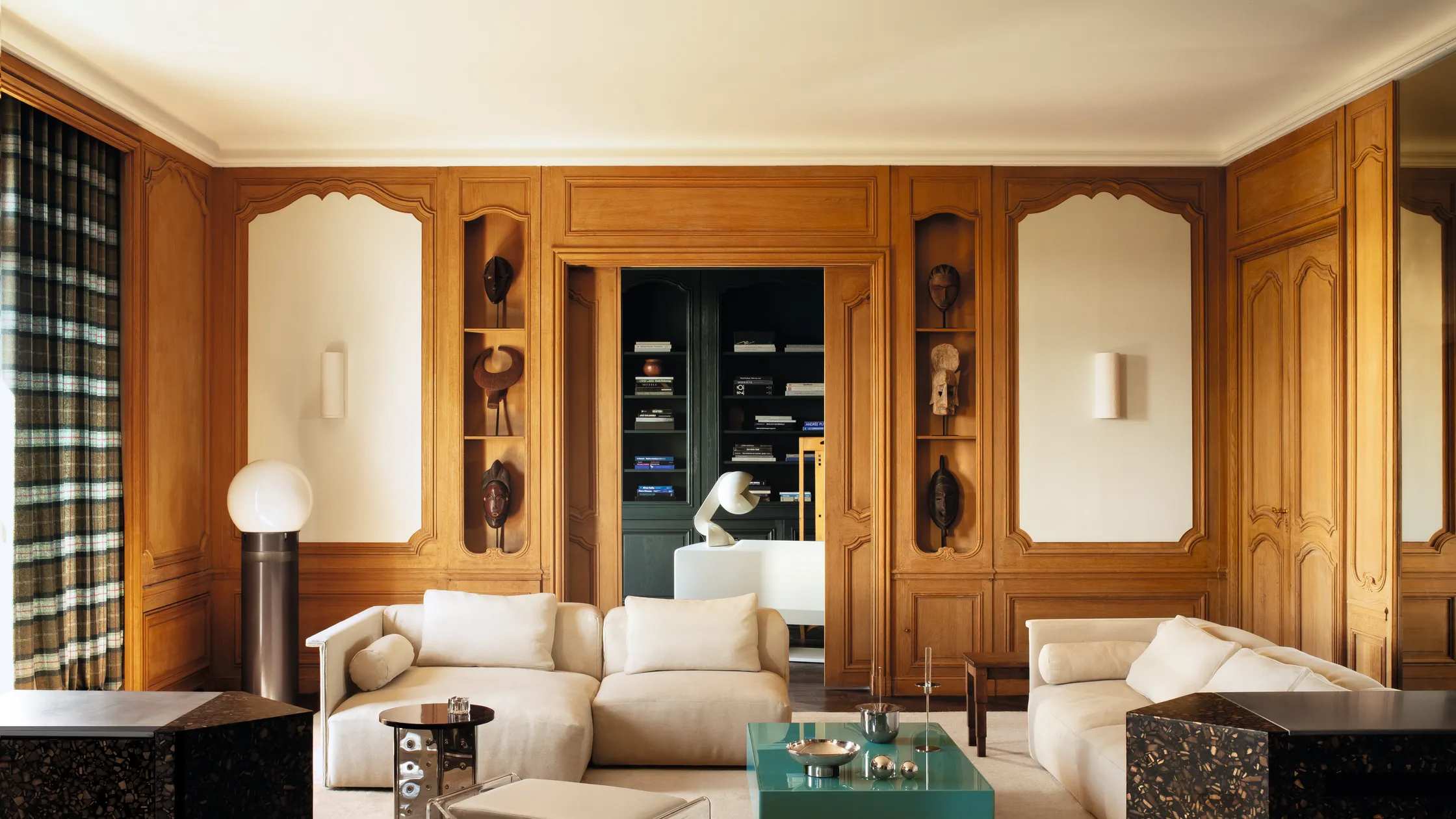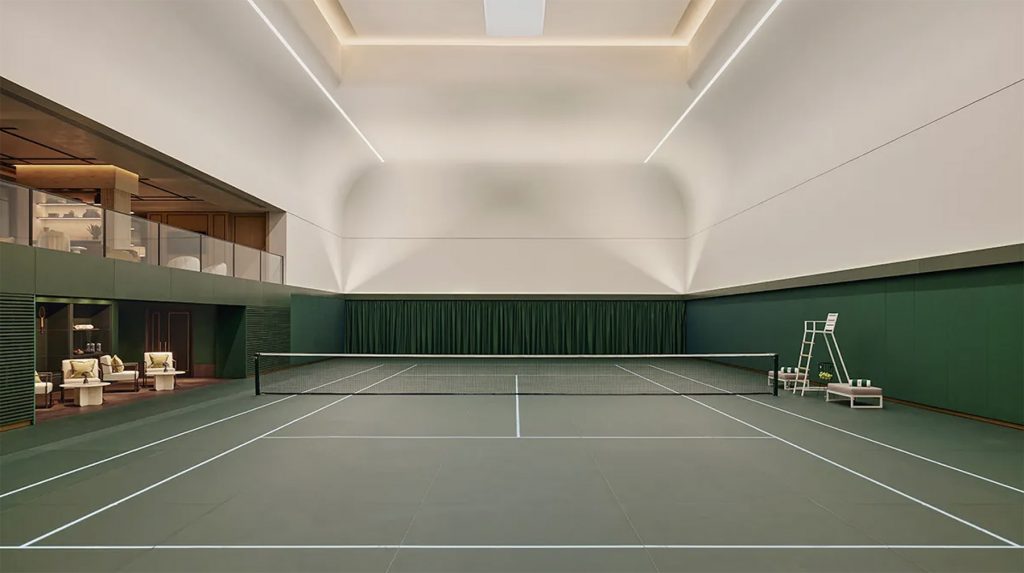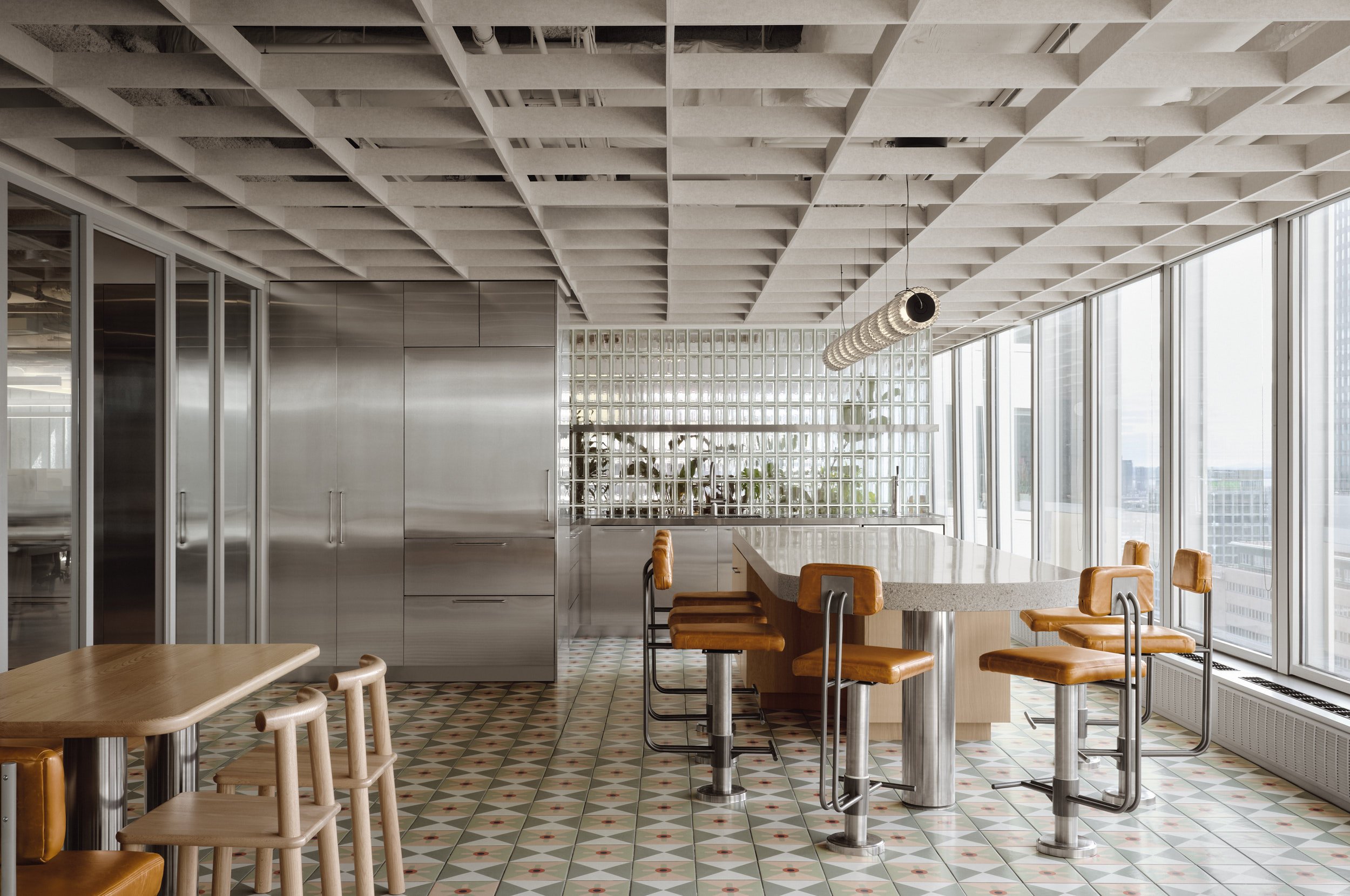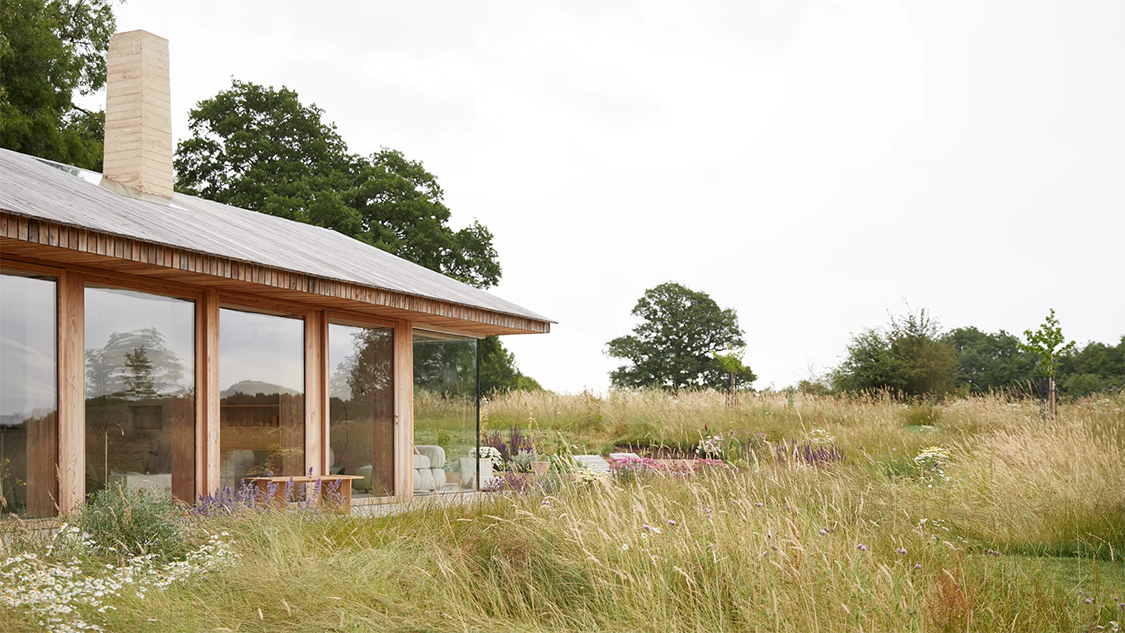
Located far enough from London to qualify as countryside, The Makers Barn started its transformation as an abandoned and uninhabitable pig shed, a farm building of asbestos and concrete.
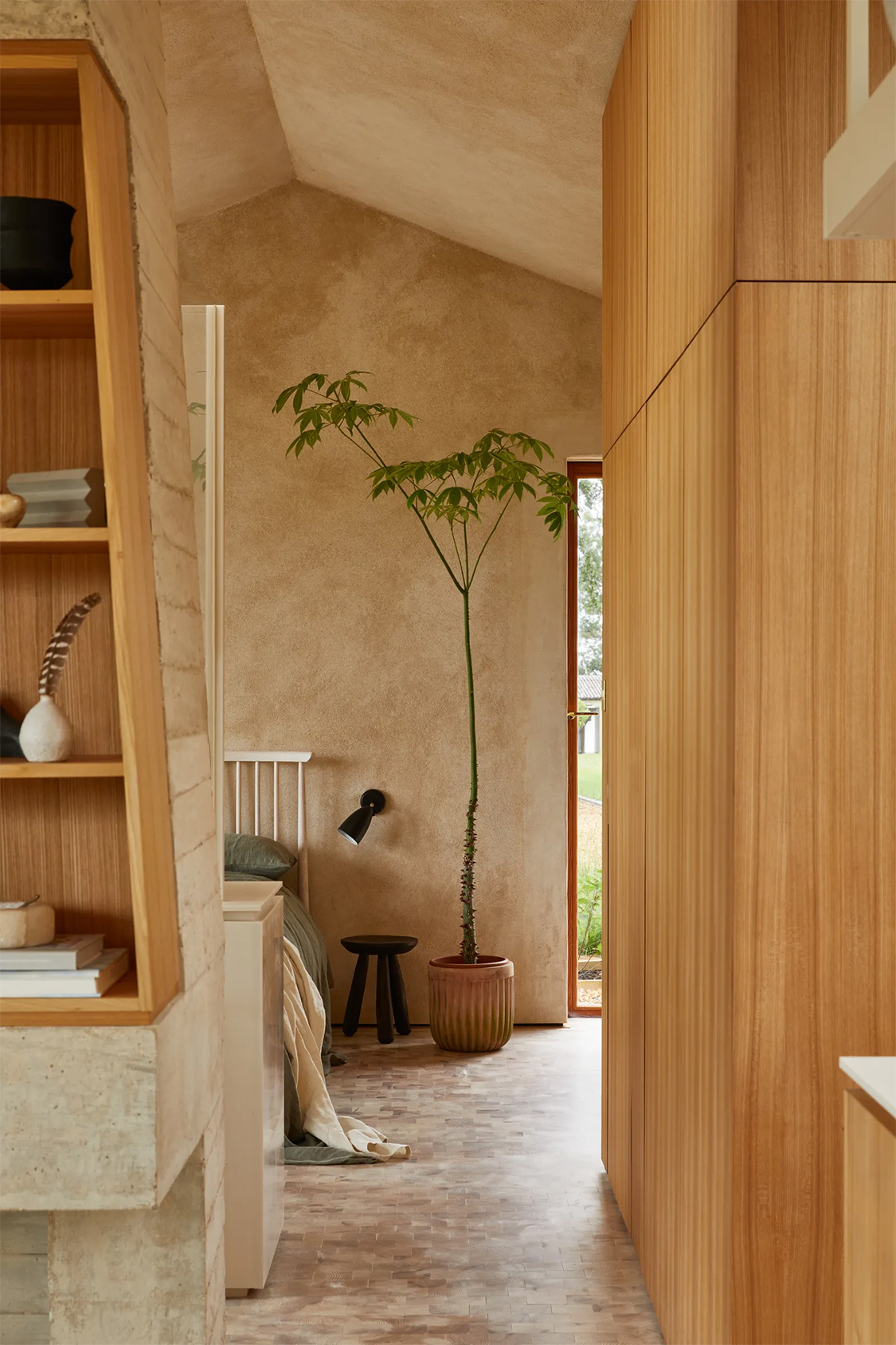
But the London-based couple that purchased it, fell in love with the location by low hills and fields of wildflowers and charged designer Craig Hutchinson of HUTCH design to not only make it habitable but to uncover the full potential of the project. They wanted a relaxing retreat in which to disconnect from city life and reconnect with nature.
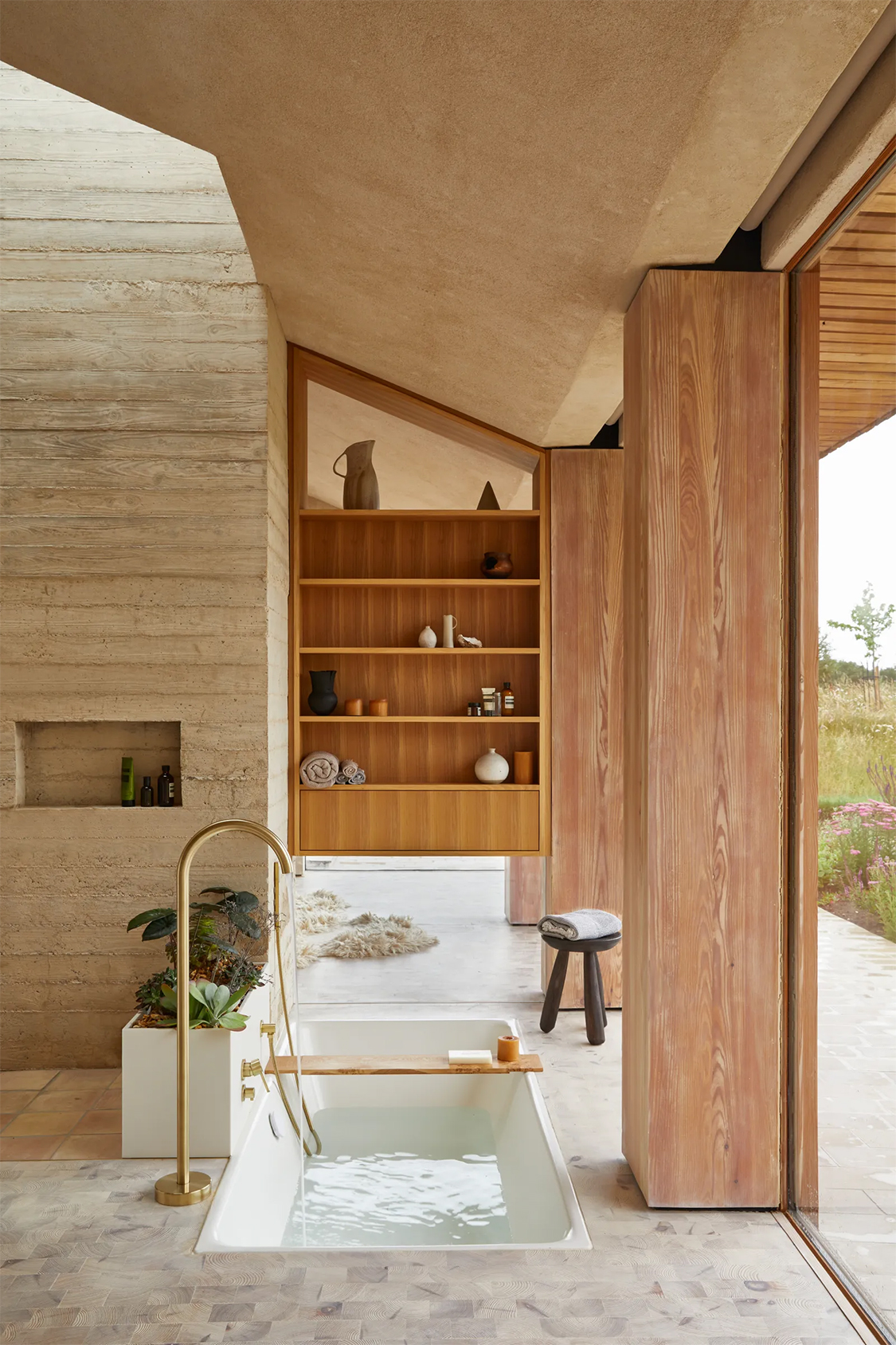
After a dramatic series of interventions, the owners now have a gorgeous 65 square-metre (700 sq.ft) house full of light and seemingly a natural part of the landscape.
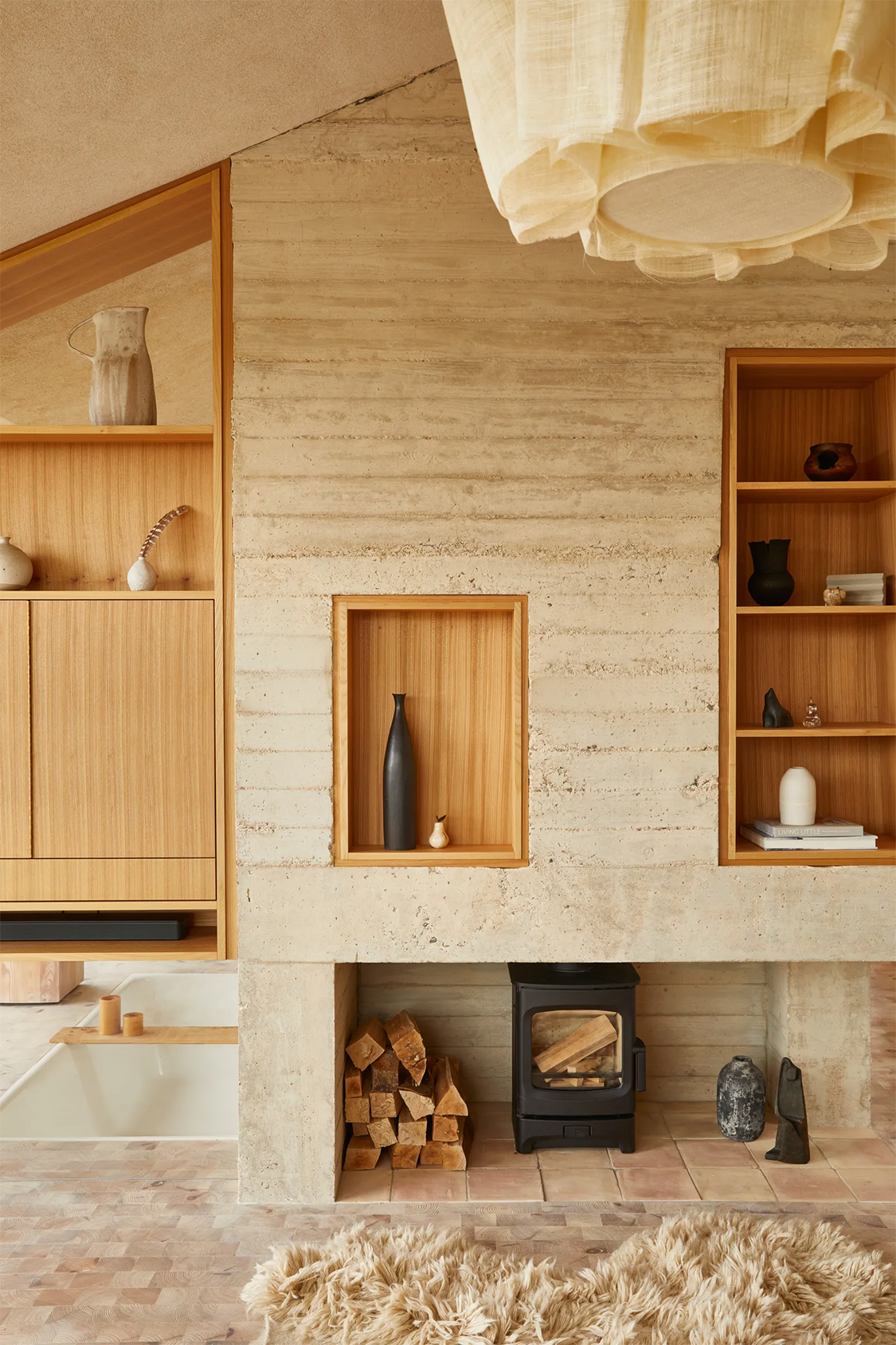
With its material palette of natural textures, and its colour scheme of hues that reflect the surrounding wildflower garden, The Makers Barn is now a highly functional retreat where the spaces are arranged around a central chimney and fireplace of poured concrete.
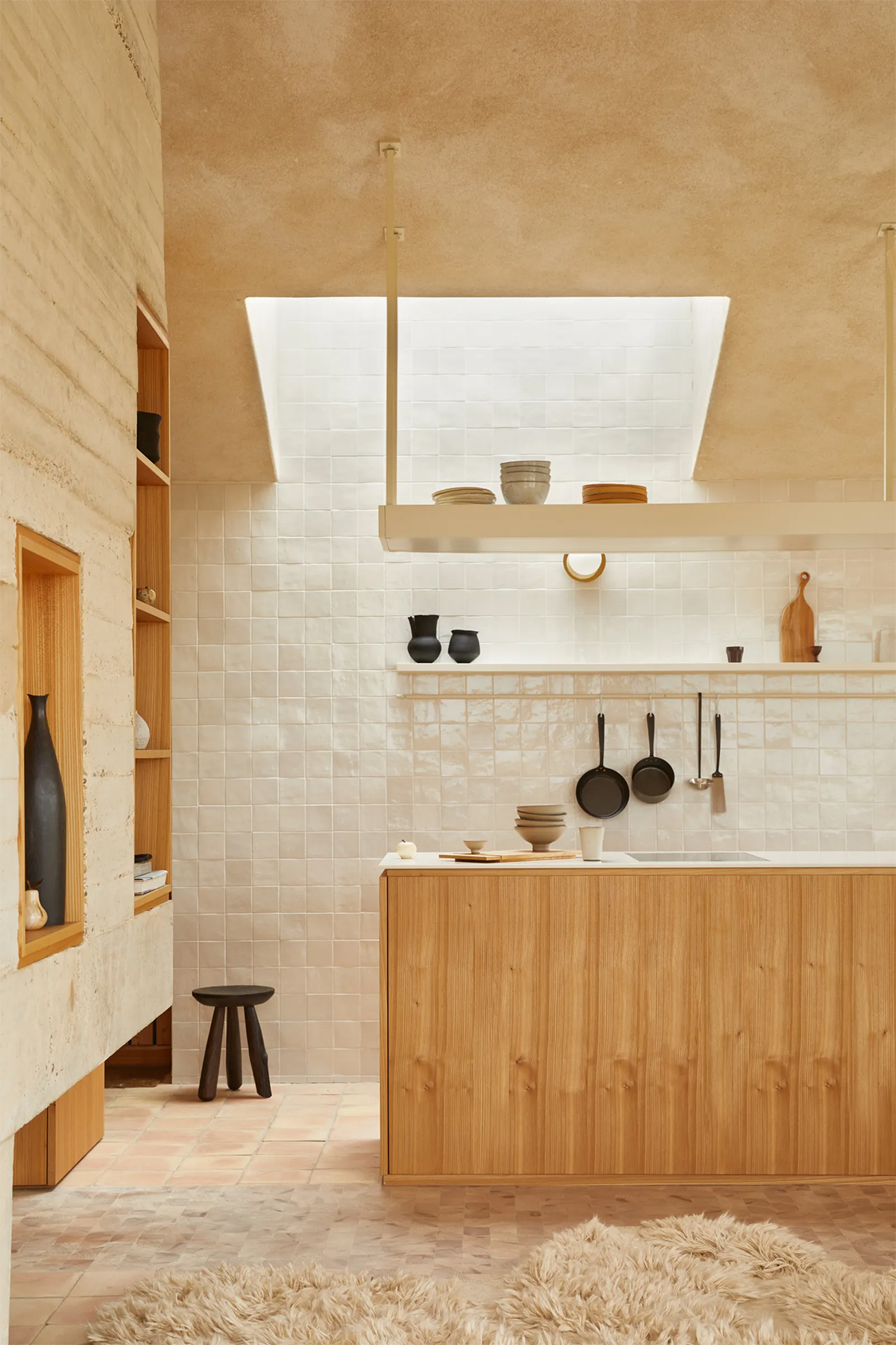
There are also several functional components – including a wood-burning stove and solar energy captors – that enable the couple to live in the house year-round, if they so choose.
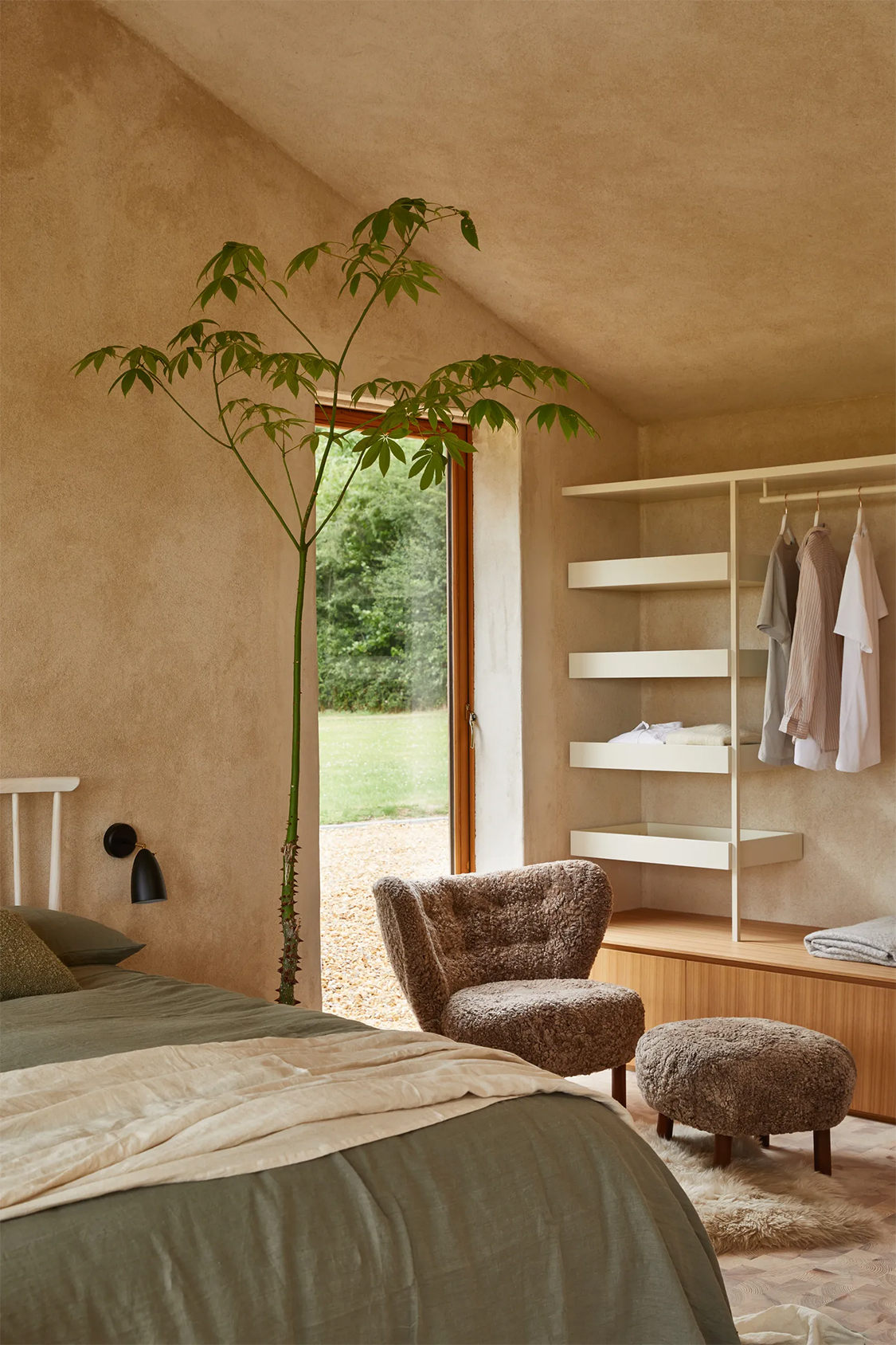
Key features of the house include thick plastered walls, timber columns and a larch timber-clad roof, all of which are also nods to the local vernacular.
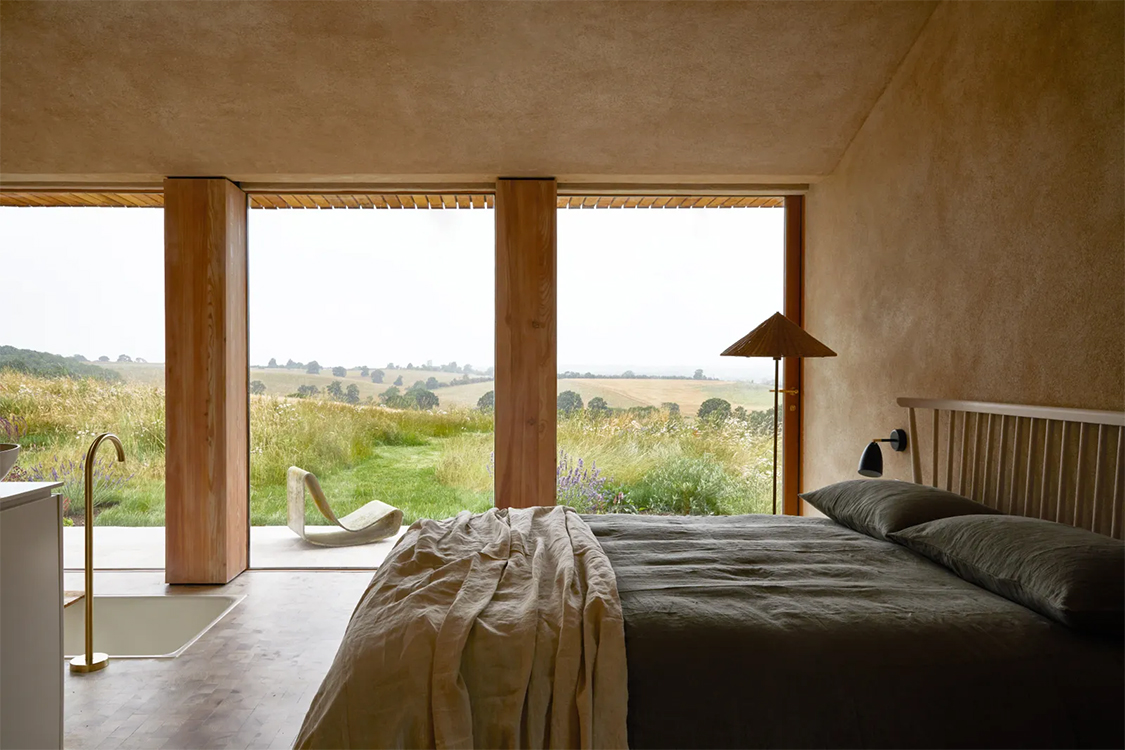
Inside, the spaces flow organically into each other, creating a feel of relaxed openness. In selecting the materials for walls, ceilings, floors, furniture and furnishings, the designers focused on emphasis on crafted, organic materials with earth tones, and styled the spaces with a mix of pieces from skilled artisans and well-known designers.
In the living-area, our favourite nook features a frameless corner window that opens up to the concrete patio and the meadow beyond.
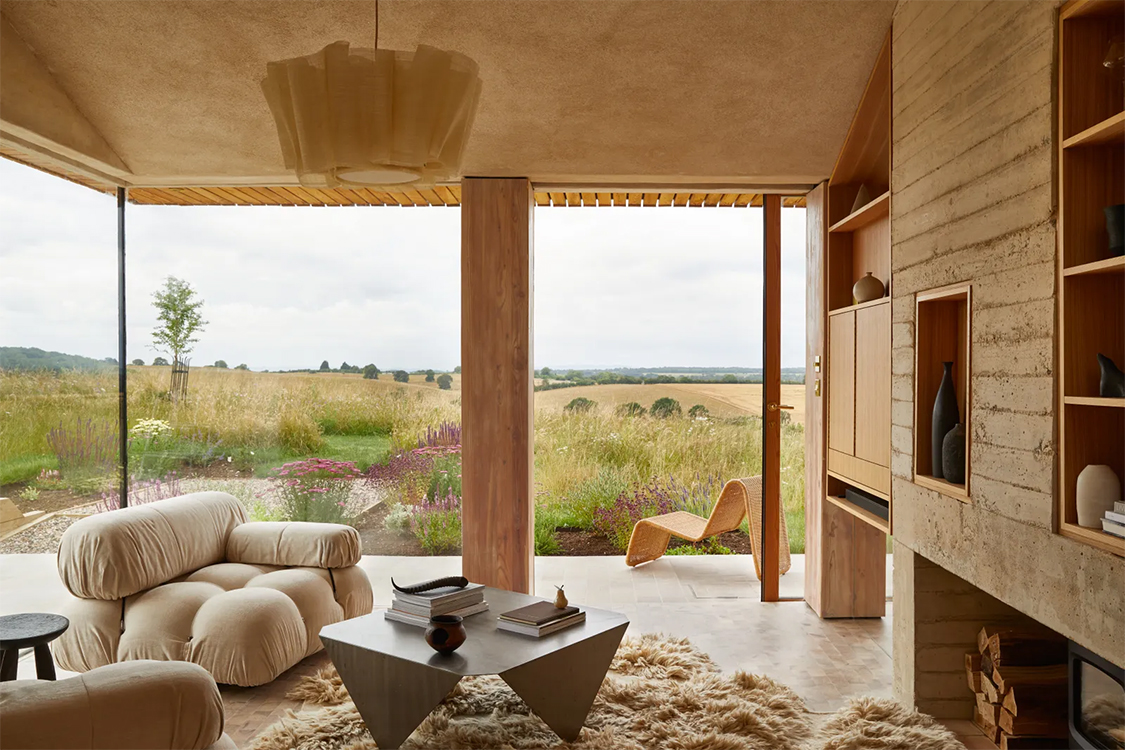
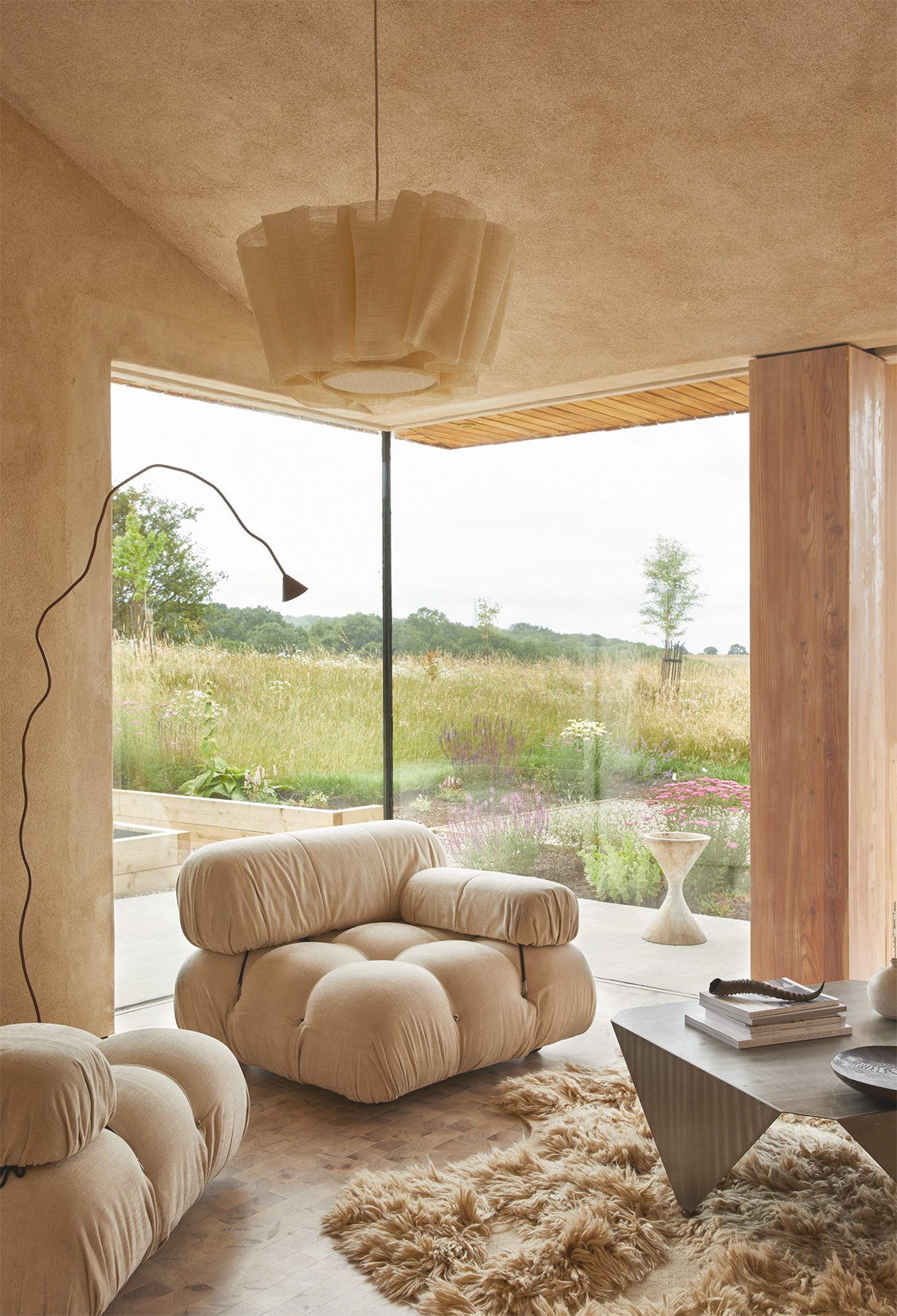
Inside, the seating area is furnished with Mario Bellini’s 1970-designed Camaleonda armchairs by B&B Italia and a folded-metal coffee table. Above the grouping, the designers placed Anders, a pendant light fixture by Pinch a hand-made of traditional milliner material, albaca fibre.
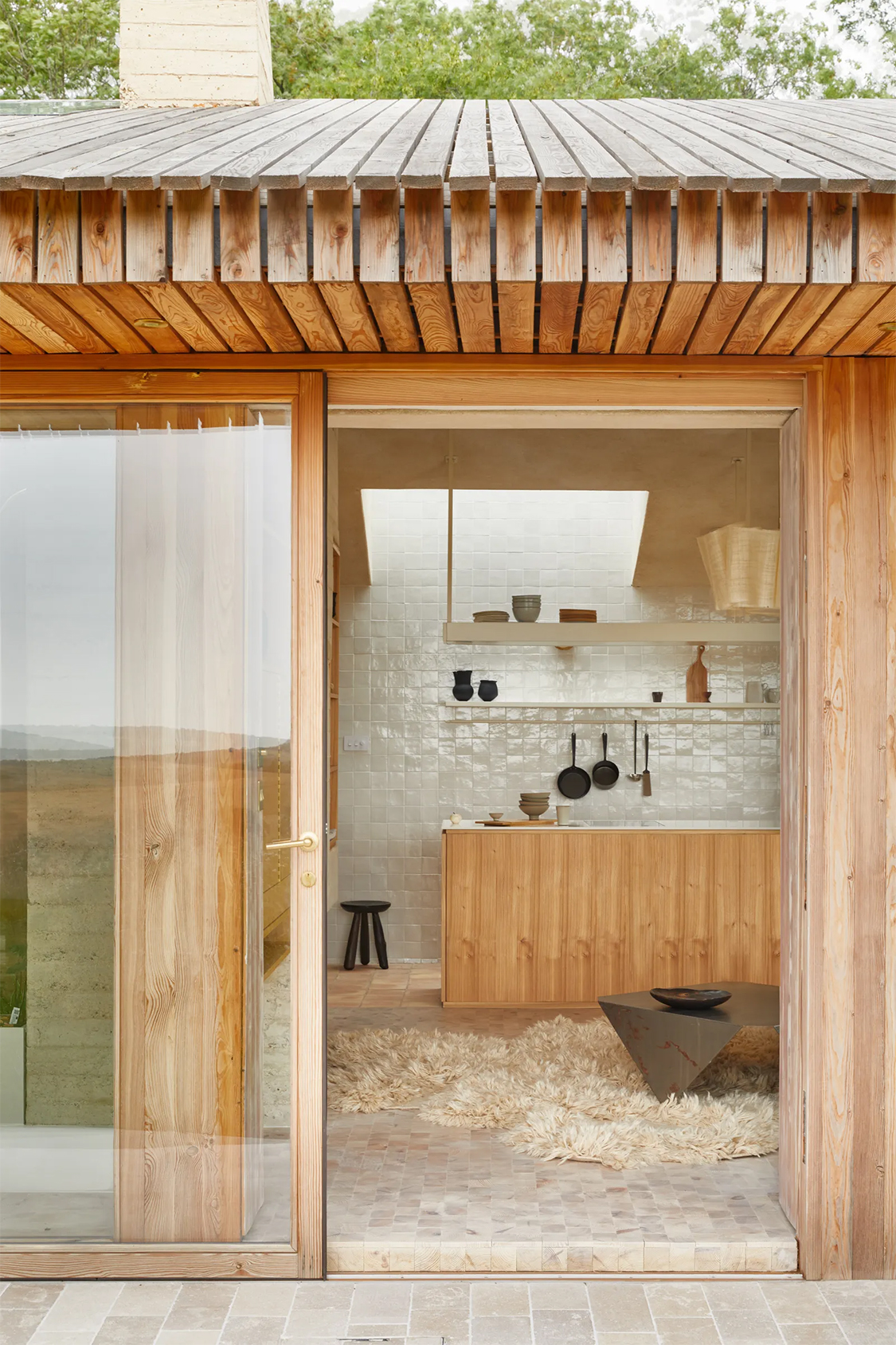
We also love the overall scale of the building and the way it sits peacefully within the landscape. Tuija Seipell
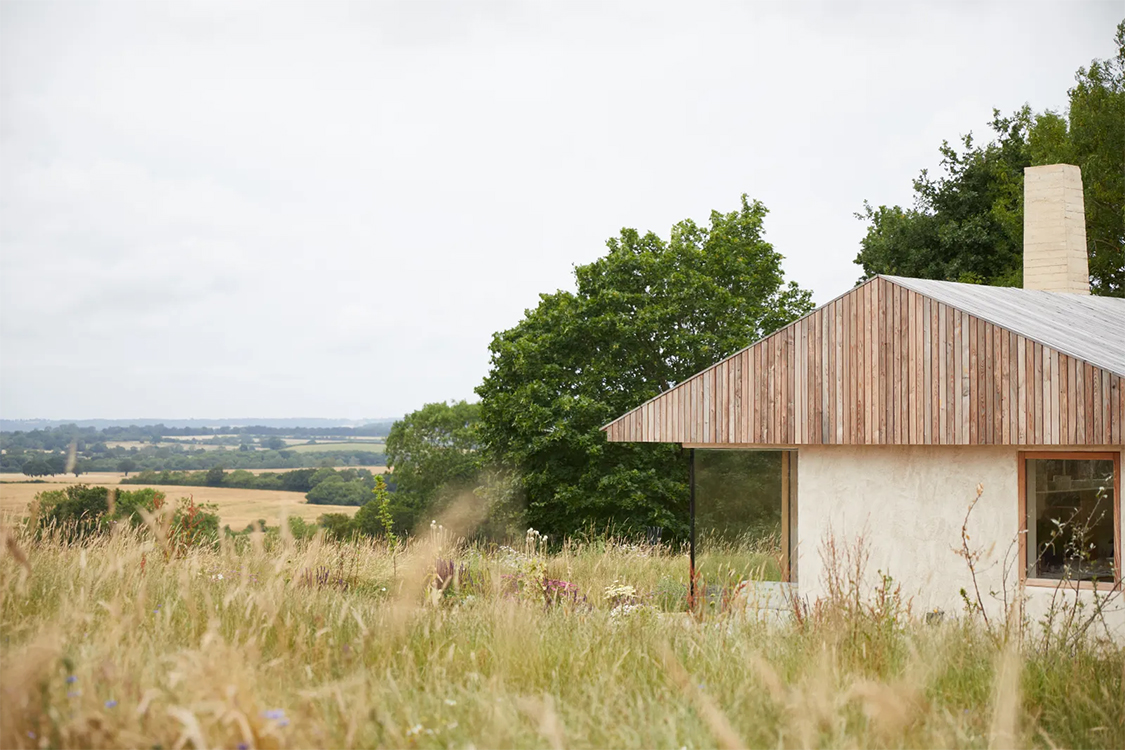
Images Helen Cathcart
